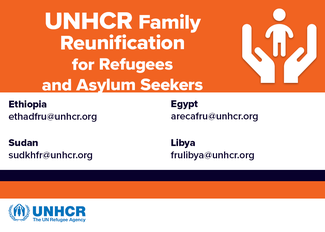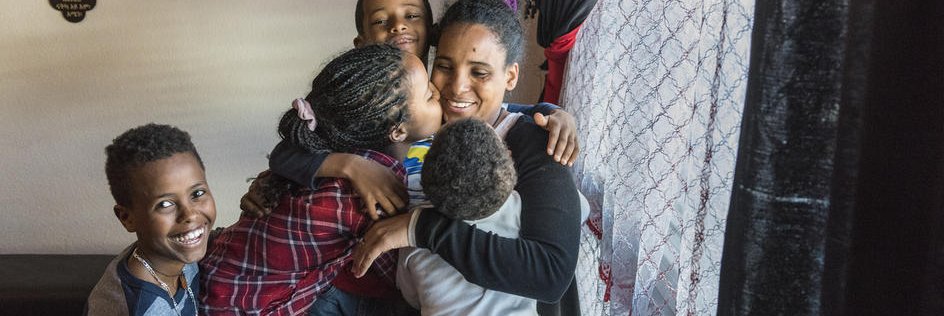What is family reunification?
Family reunification is when dependent family members such as children, spouses, parents, etc. are brought together after a period of separation. For asylum-seekers and refugees, this process can happen within a country of asylum, across borders, return to country of origin or to a third country.
How do I find out if I qualify for family reunification?
Your relative may be able to advise on whether you qualify for family reunification after speaking with a lawyer or social worker in the country where they reside.
Most countries offer free legal services through local NGOs. You can also find information on individual government websites online where they frequently provide eligibility guidelines and application requirements for the specific country where your relative is located. The process can be complex, confusing, and long, so it is important to get information on eligibility and application procedures only through trusted sources. In some situations, the UNHCR office in the asylum or destination country may be able to advise you on your eligibility as well.
How can UNHCR support my family reunification process?
UNHCR’s ability to assist your family reunification project depends on the location where you reside and the specifications of your case, but below are a few examples of possible support:
- Complete formal Best Interests Procedures for the purpose of family reunification and supporting the family reunification application
- Facilitate the provision of documents for the purpose of FR;
- Provide counselling to individuals in the FR process, including referral of family members abroad to service providers or legal assistance;
- Facilitate travel logistics to Embassy interviews;
- Liaise with host governments for exit visas and related formalities;
- Assist with obtaining necessary travel documents to facilitate travel;
- Facilitate DNA testing when required;
- Refer cases for travel assistance and support;
- Answer queries from NGOs and private and pro bono lawyers who need input or assistance to help move family reunification forward once consent is obtained.
In 2019, UNHCR launched a project in Egypt, Ethiopia (Addis Ababa and Shire), Libya and Sudan (Kassala and Khartoum), aimed to assist refugee and asylum-seeking children, youth and adult spouses reunite with their family members. UNHCR has partnered with the International Refugee Assistance Project (IRAP) to provide free specialized legal aid support for refugees and asylum-seekers with nuclear family members in the following countries: Belgium, France, Germany, Norway Sweden, the Netherlands, the UK, and the USA.
IRAP works with a team of in-house lawyers, NGO and pro bono partners in Europe and North America to provide legal assistance to file and/or litigate family reunification applications for complex cases. UNHCR can provide direct support for those with family links to Italy and Canada through our UNHCR offices in Rome and Ottawa.
If you are a refugee or asylum-seeker in Egypt, Ethiopia, Libya or Sudan, you can reach out to the UNHCR family reunification focal points in each of these locations at the email address below.

If you have sought asylum in another country other than the four listed above, please reach out to your UNHCR office so they can best advise you on their ability to help.
I know I qualify for family reunification, but my relative and I do not know how to start the process. What do can we do?
Depending on your country of asylum and the country of intended destination, UNHCR may be able to help connect you to a lawyer through our network of offices abroad.
How long will it take before I can join my relative?
Once you and your relative file the family reunification application, there is no guarantee that your case will be approved by the competent authorities in the destination country. While UNHCR may be able to support your family reunification process, UNHCR does not have any influence or impact over any decision made on family reunification applications. This decision is made by the competent authorities in the destination country only.
While family reunification procedures and requirements vary from each country, the process can be long with a general need to provide many documents (national passport, national ID, birth and marriage certificates, etc.) and attend multiple interviews. In some cases, you may be required to give DNA to verify the family relationship. UNHCR cannot advise on timelines for individual family reunification programs. If you have a case in process, please bring it to UNHCR’s attention in the event we can possibly help.

